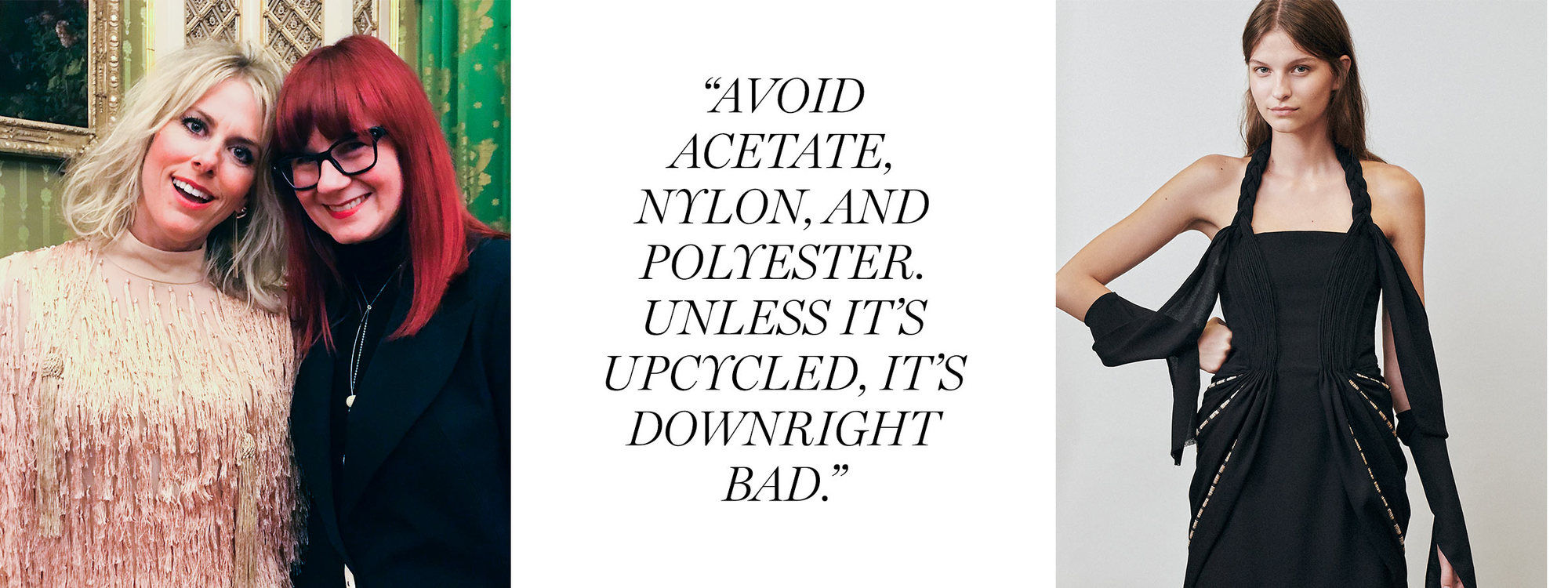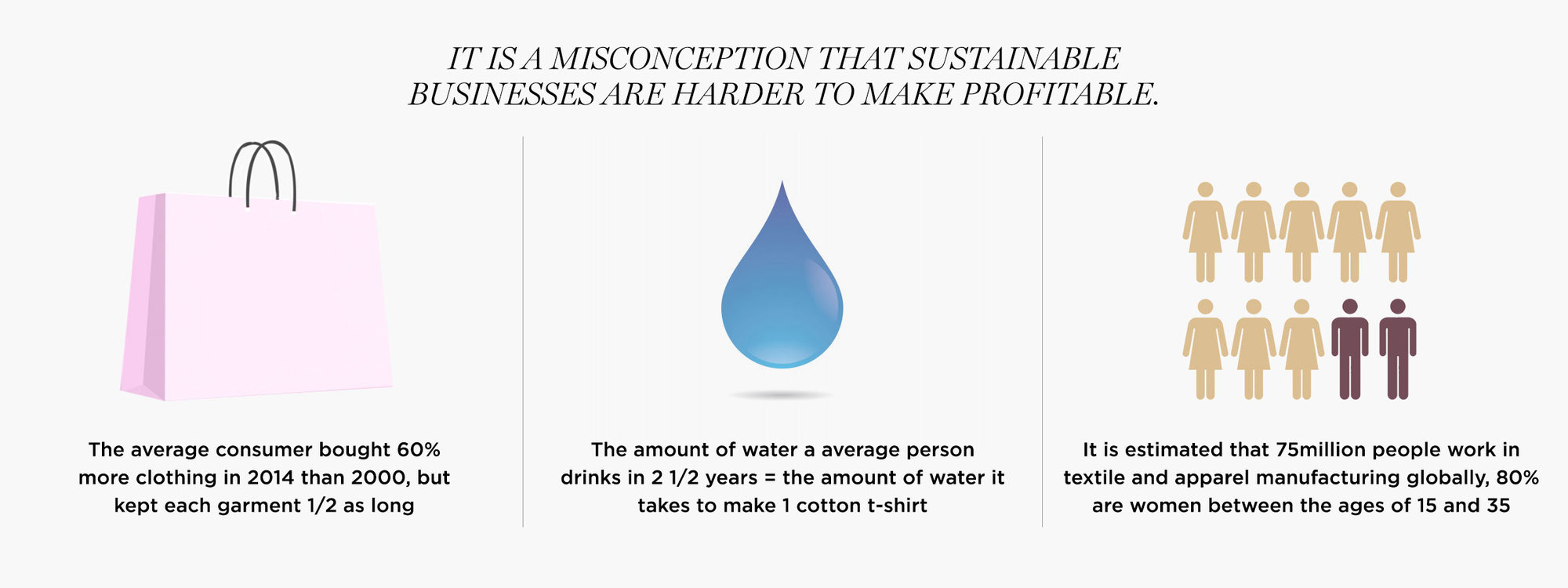
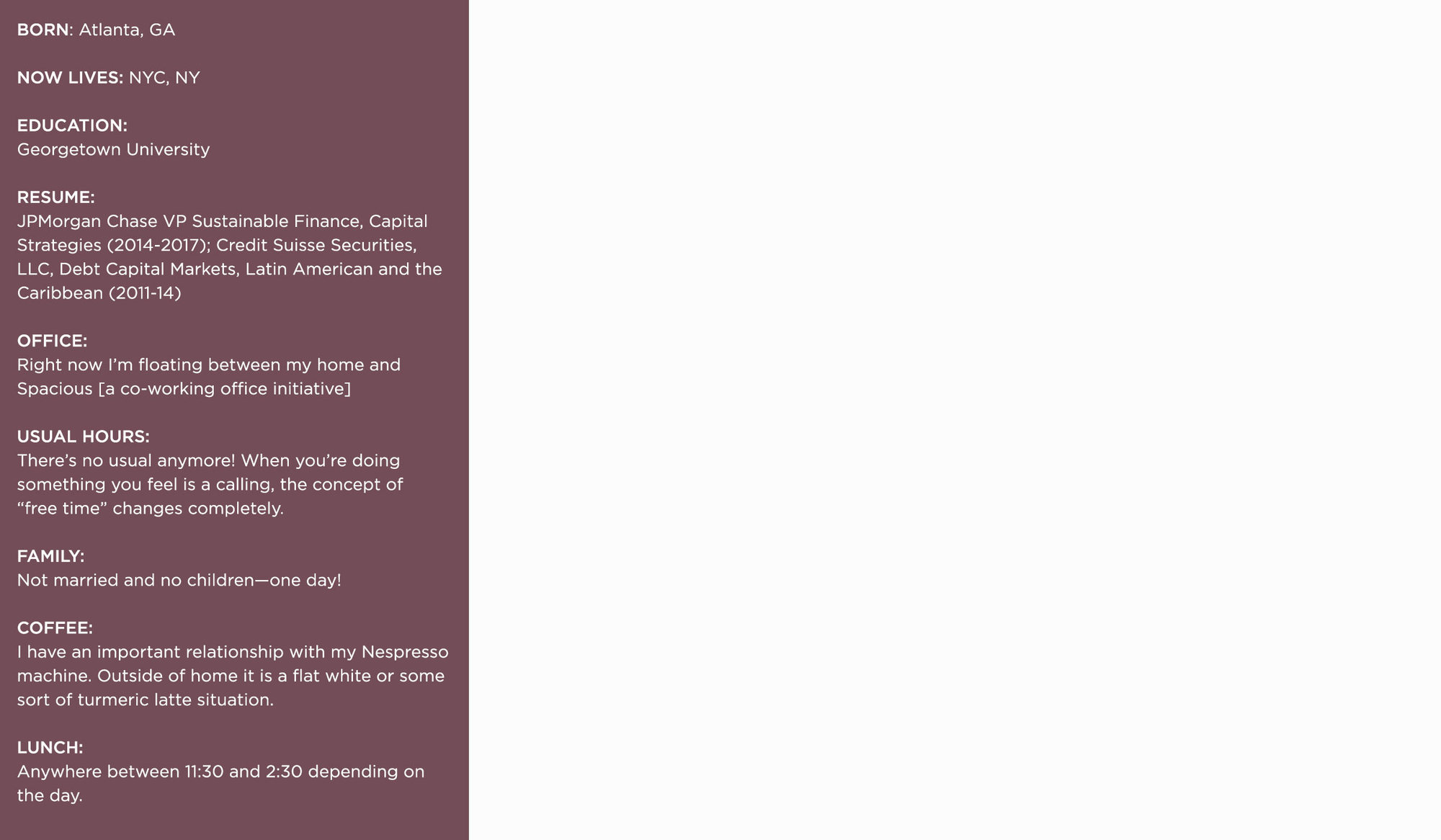
What do you do?
I help companies that can make the apparel industry more environmentally and/or socially sustainable grow and scale.
What did you want to be "when you grew up"?
A dentist, and then an endocrinologist, and to do Doctors Without Borders.
What do you love most about your job?
Constantly learning and interacting with inspiring people who want to see positive change in the world, while also working within an industry I’ve been personally passionate about for as long as I can remember.
What would you advise someone today?
Think about the change you want to see in the world, and marry that with what you’re naturally good at and enjoy spending your time doing.
How would you describe your personal style?
Polished bohemian
Is there a key piece in your closet that you wear to work?
I’ve had an attire shift since changing jobs last year, but I love a power dress.
Do people “get” your job?
Finally, yes! I think other people would say I invest in sustainable fashion companies, which isn’t the whole story, but it is in the ballpark!
Name 3 characteristics required to do your job well.
1. Curiosity; 2. The ability to zoom out and zoom in—big picture and vision is crucial, but solving big problems often takes a portfolio of more focused solutions; 3. Being a natural connector, for myself and others.
What is your greatest achievement to date?
Having the integrity to jump on the opportunity to pursue my passion, after putting myself in a position from a skills and financial perspective to do so.
How do you define success?
Making enough money to live in a home that makes me feel content, having the freedom to spend time with people I love (and who love me!) and visiting new places for inspiration frequently enough to remember the world is not Manhattan.
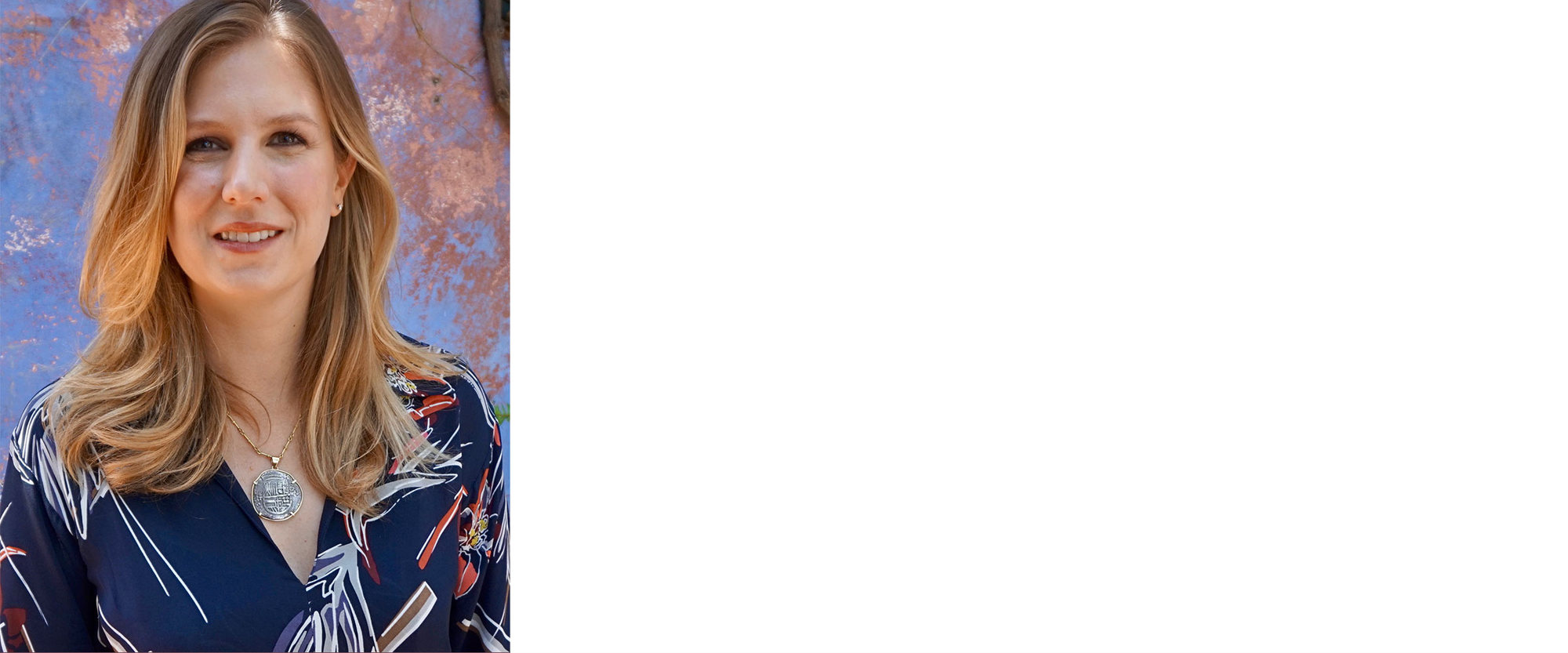
Managing Partner, Alante Capital
Leslie Harwell
When we think about people who strive to “be a force for change in the world,” a New York financier isn’t exactly the first to come to mind. But 33-year-old former Wall Street banker Leslie Harwell is on a mission to make the entire apparel industry more sustainable. And that requires money—lots of it. Enter Alante Capital, a new startup backed by eco-fashion pioneer Eileen Fisher. Harwell and her partner, Alante-founder Karla Mora, plan on investing in sustainable companies across the entire lifecycle of the apparel industry, from agricultural initiatives that tackle farming pollution to new textile companies to post-consumer recycling programs.
As the “connective tissue” between game-changing ideas and the money they need to flourish, Harwell is required to have a sophisticated understanding of the ecological and social issues we currently face, an encyclopedic knowledge of the latest businesses that spring up to combat them and—not least of all—financial savvy. “It is a misconception that sustainable businesses are harder to scale and make profitable,” she says, believing wholeheartedly that they offer investors a better long-term financial return. And it appears that the financial players are beginning to agree with her. “People are now realizing that environmental and social costs that may have once been non-financial have started to become financial,” Harwell explains. But, in order to really move the needle, change needs to happen at the consumer level, too. “I think if a broader segment of the population was visually confronted with the realities of what goes into what they put on their bodies, we would start seeing more rapid shifts in buying patterns.”
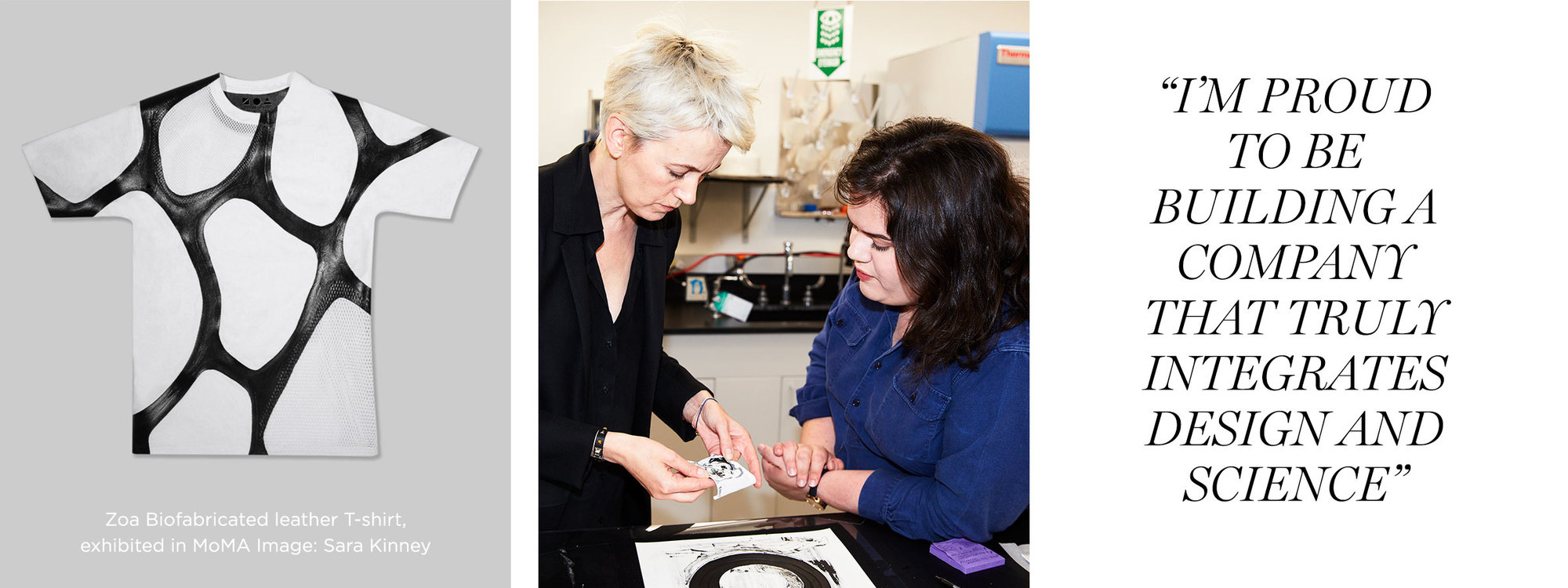
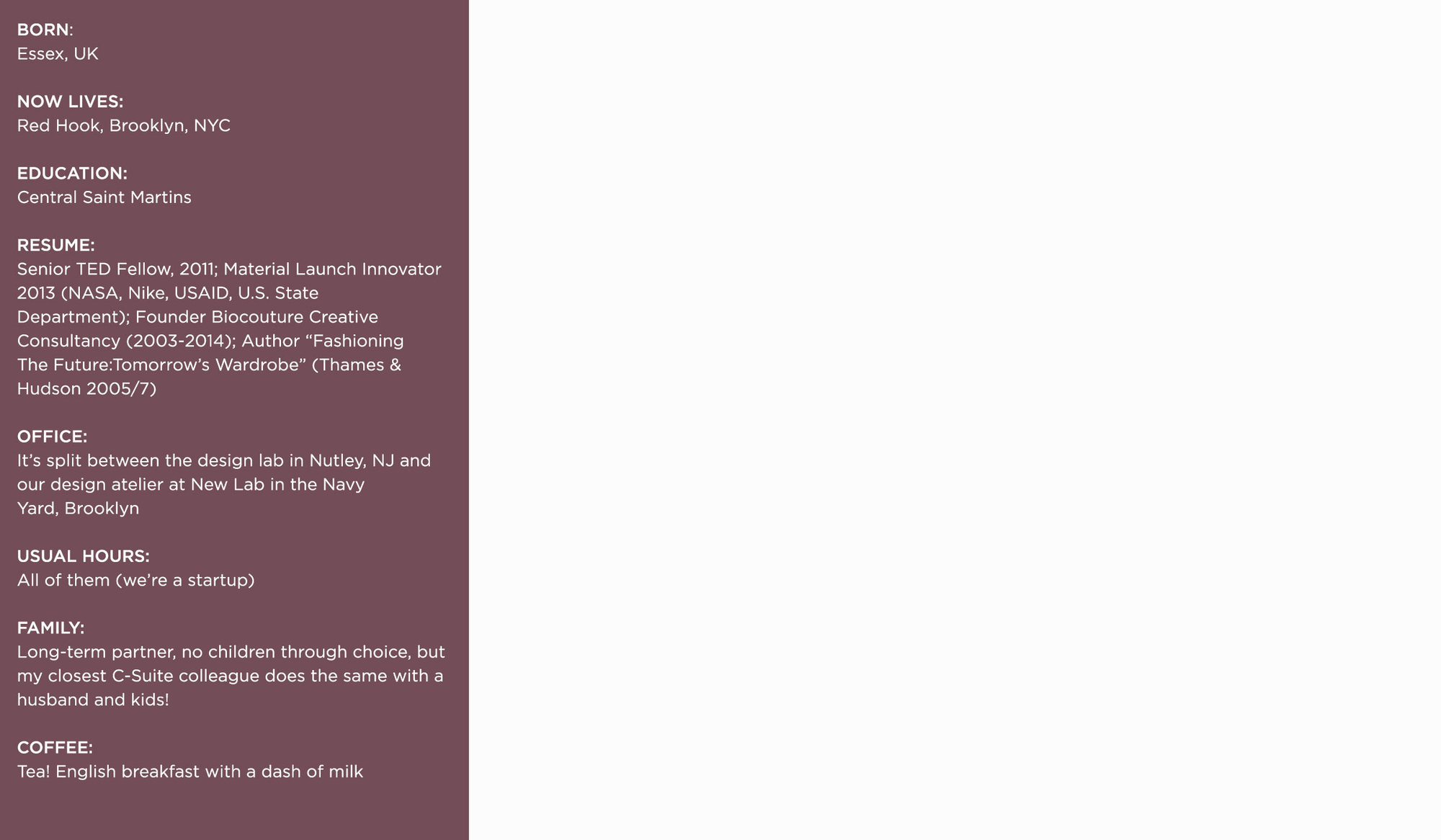
How do you describe what you do?
I help a powerhouse team of scientists understand the world of design, materials and manufacturing while educating designers at global brands about the coming material revolution (biofabricated materials like bioleather grown without animals).
What did you want to be "when you grew up"?
Unoriginally a fashion designer.
What do you love most about your job?
Expanding the definition of design beyond the product itself to include designing interactions, partnering strategy and storytelling.
What do you dislike about your job?
No longer being the one in the lab/atelier making with my hands.
What would you advise someone today?
Be brave. Don’t be scared to take a lone stance. That’s how I got here.
Is there a key piece in your closet that you wear to work?
I have an expanding selection of Common Projects sneakers that work with most of what I wear.
Do people “get” your job?
People have no idea what I do because literally no-one has ever modeled this precise role before. There has never been a Chief Creative Officer at a biotech company with a background in fashion design.
Name 3 characteristics required to do your job well.
Patience, because the timeline for tech innovation in biotech is challenging for a designer: I want it now! Ingenuity, as we’re constantly seeking to approach problems from a unique angle. And determination, because birthing new technologies like this is hard and there was no roadmap for this as a career.
What is your greatest achievement to date?
Writing my book: it forecast the world I’m now in over a decade ago.
How do you define success?
I want to see biofabricated materials offer alternatives to designers everywhere. My annual Biofabricate summit in New York seeks to promote material innovators, connecting them to investors and brands to grow all our futures.
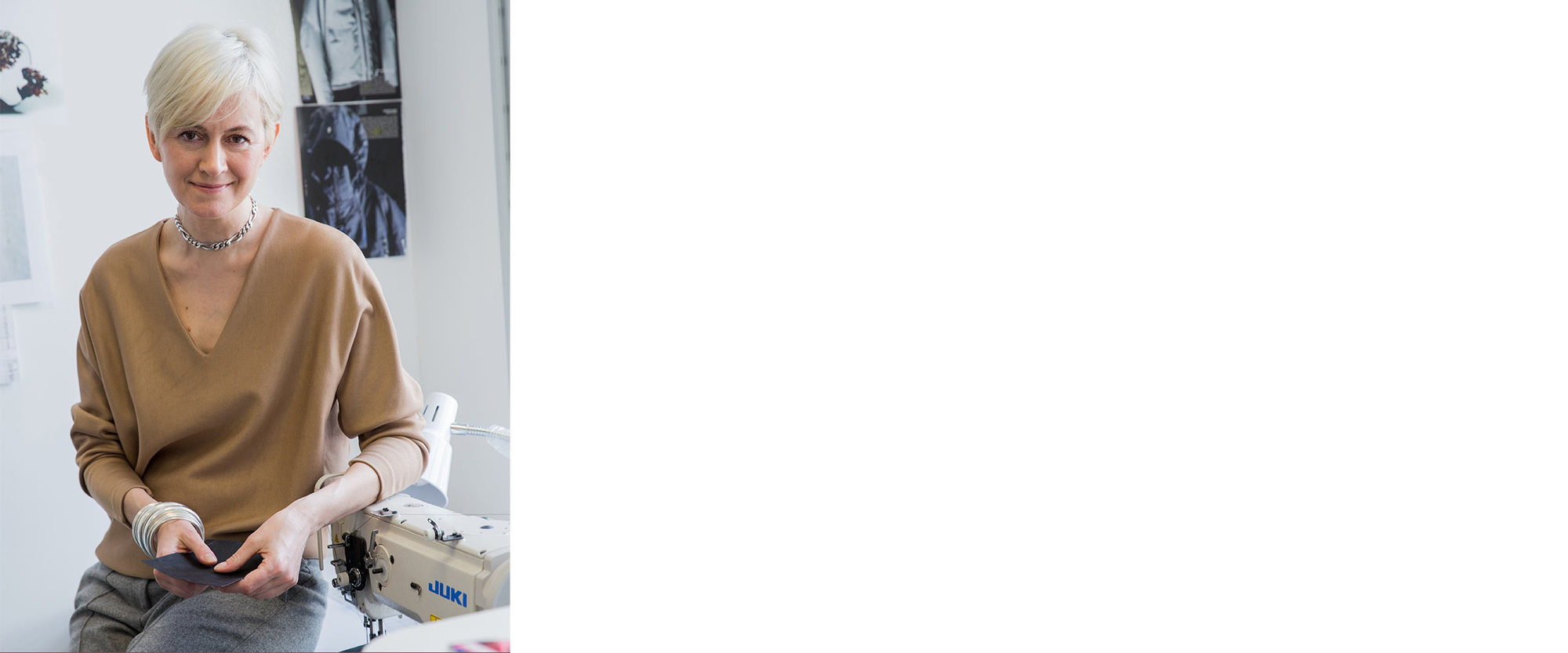
Chief Creative Officer at Modern Meadow
Suzanne Lee
The most accurate way to describe what Suzanne Lee (along with the help of 60 scientists and a large lab in New Jersey) creates is “a world of bioleather materials.” What is bioleather exactly? Made of collagen (the same protein found in skin) and grown from yeast, it marks a new standard for eco-friendly, animal-free leather. So what does it look and feel like? “It starts off as a liquid but it can take any form,” explains the former fashion designer-turned-author-turned creative officer of a biotech startup, Modern Meadows. Translation? We could, in theory, own everything from bioleather handbags (not dissimilar from the one you’re carrying now) to incredibly intricate hand-painted bioleather lace gowns. But beyond offering designers new creative possibilities, what makes the hard-to-define material so revolutionary is its sustainable status. “A lot of people are looking for a better environmental footprint. We are trying to recreate the materials that nature gives us, without using animals or fossil fuels,” Lee explains of the driving force behind Modern Meadows (founded in 2013).
Many in the industry recognize her from the groundbreaking TED Talk, Grow Your Own Clothes. (It has been viewed over a million times and translated into 39 languages since 2011.) A graduate of the prestigious London design school Saint Martins, 49-year-old Lee shares a common background with famous names such as Stella McCartney and Phoebe Philo, but the self-confessed sci-fi fanatic has always been more interested in pushing technological boundaries than sending collections down runways or seeing them pictured in glossy magazine editorials. Yet, a Vogue debut might just be on the horizon. She’s currently working with a large luxury house on the first bioleather products, due to hit the market is less than two years. “We have some big players in the world who are (finally) putting money into developing solutions” she reveals. Stay tuned for who they are.
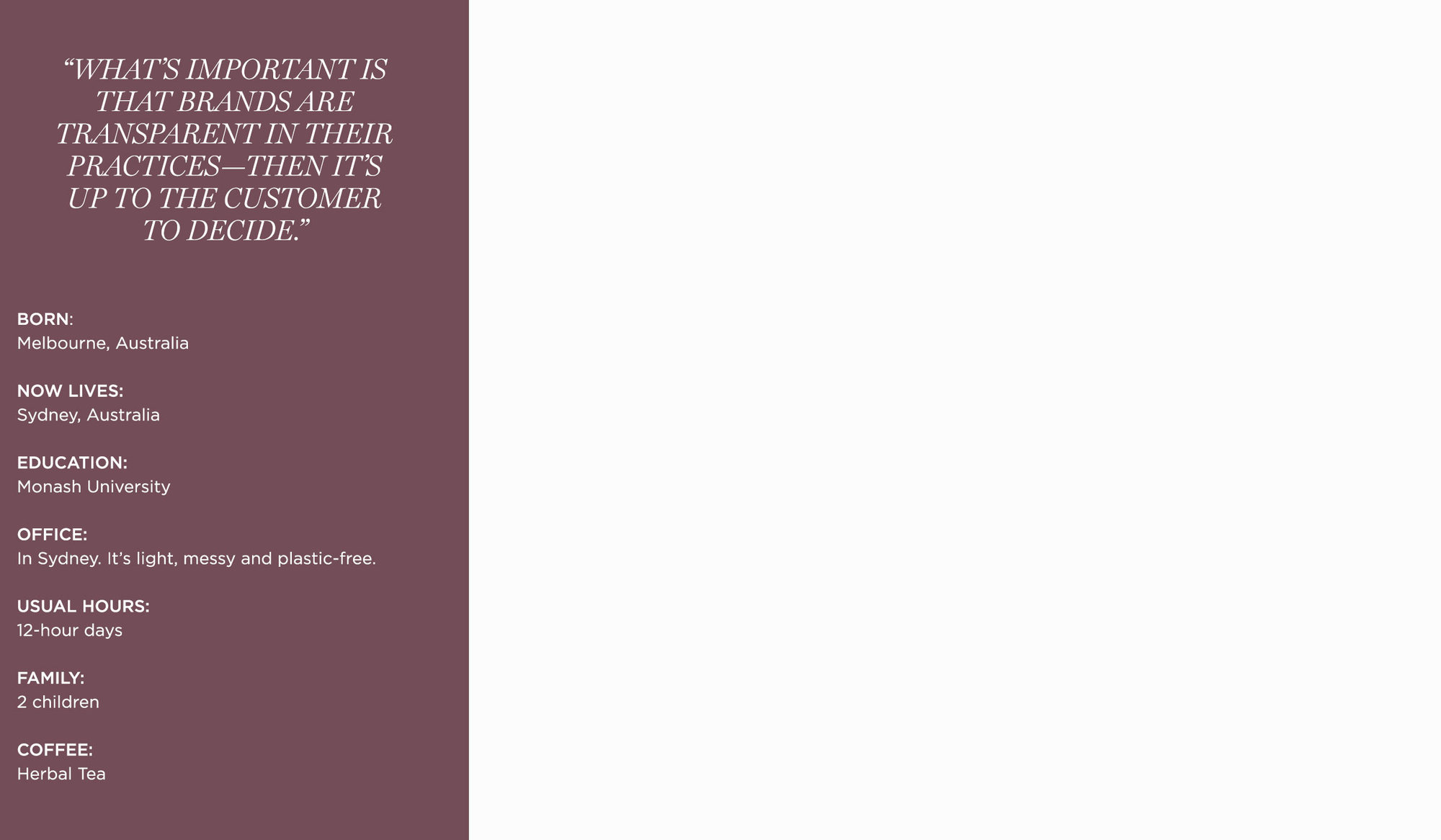
In your words, what do you do?
Create, inspire, be inspired, mother, learn, and dream—and work bloody hard!
How did you get your start?
I founded my first fashion label, Willow, when I was 23. My breakthrough moment regarding sustainable fashion came in 2013, after meeting Jochen Zeitz on the board of Kering (he is a huge environmentalist). He talked about the environmental P&L and revealed that the biggest loss occurs at the materials level. It's the farming; in the dirt. I founded KITX in 2015 with a focus on consciously sourcing materials, because that's where it's going to have the greatest positive impact on the planet.
As a child, what did you want to be "when you grew up"?
A movie star
What do you love most about your job?
Creating
What do you dislike about your job?
Time constraints and human constraints
What was the best advice you ever received?
Always expect the best but be prepared for the worst.
What would you advise someone today?
Don’t use plastic, think consciously about the effect of your decisions and work hard.
How would you describe your personal style?
Simple, feminine rock-mess chic
Name 3 characteristics required to do your job well.
Resilience, problem-solver, creative on tap
What is your greatest achievement to date?
My two beautiful children and KITX
How do you define success?
Being useful to many.
